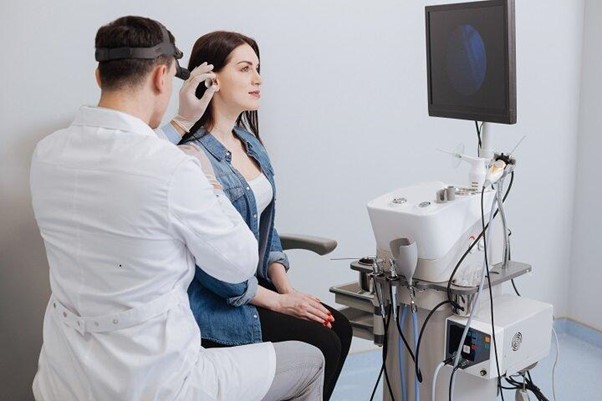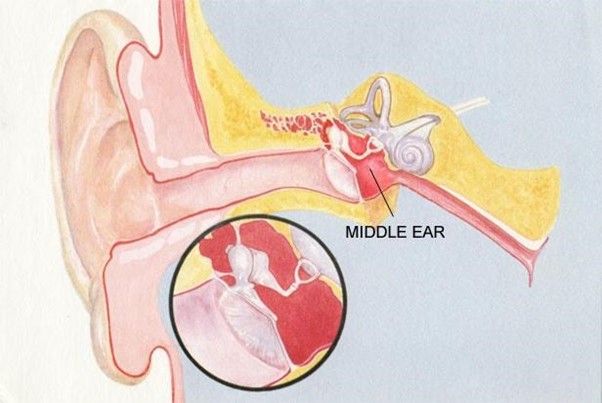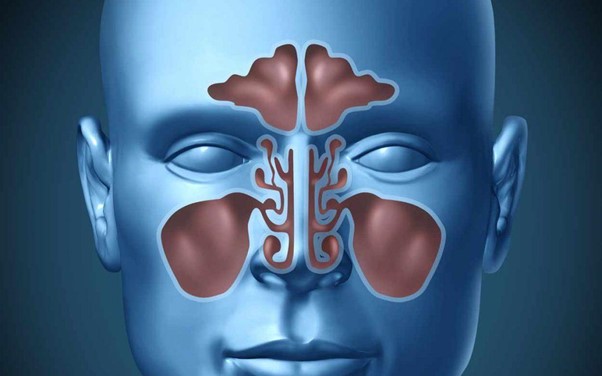
Recognizing the Signs: When to Head to an ENT Clinic
Ear, nose, and throat (ENT) issues are among the most common health problems, prompting numerous medical visits each year. From persistent earaches to chronic sinusitis, and voice disorders, ENT concerns cover a broad spectrum of conditions that can affect people of all ages.
Understanding when to seek the specialized care of an otolaryngologist, commonly known as an ENT specialist, can make a significant difference in managing these conditions effectively.
In this article, we’ll discuss the specific signs and symptoms that should prompt a visit to an ENT clinic.
Ear Concerns
Hearing Loss
If you notice a sudden or gradual decrease in your hearing ability, it’s important to visit an ENT clinic. Early detection and treatment of hearing loss can prevent it from worsening and improve your quality of life.
Persistent Ear Pain or Ear Infections
Ear pain can be a symptom of various issues, including infections. Chronic or recurrent ear infections, especially in children, may require the attention of an ENT specialist.
Tinnitus
A constant ringing or noise perception in the ears, known as tinnitus, can be a nuisance and interfere with daily activities. An ENT can help determine the cause and provide treatment options.
Fluid Discharge from the Ear

Discharge from the ear is not normal and can be a sign of an infection or a ruptured eardrum. An ENT specialist can diagnose the issue and suggest an appropriate treatment plan.
Nose Concerns
Chronic Sinusitis
If you suffer from persistent or recurrent sinus infections that don’t respond to standard treatments, an ENT specialist can help with more advanced management strategies.
Nasal Obstruction or Congestion
Difficulty breathing through the nose can be due to various reasons, including a deviated septum or nasal polyps. An ENT doctor can identify the root cause and discuss surgical or non-surgical treatment options.
Allergies
If over-the-counter allergy medications are not alleviating your symptoms, an ENT clinic may offer allergy testing and more specialized treatments.
Nosebleeds
Frequent nosebleeds, especially if they are severe or difficult to control, warrant a visit to an ENT clinic to determine and address the underlying cause.
Throat Concerns
Chronic Sore Throat

When a sore throat lasts longer than a week or recurs frequently, it may be a sign of a more serious condition, such as tonsillitis or GERD, which requires specialist care.
Voice Changes or Hoarseness
If you experience persistent changes in your voice, such as hoarseness, that last for more than two weeks, an ENT specialist can evaluate your vocal cords.
Difficulty Swallowing
Difficulty swallowing, or dysphagia, can indicate various ENT conditions, including throat or esophageal disorders, and should be assessed by a specialist.
Lumps in the Neck or Throat
Any persistent or growing lump in the neck or throat should be evaluated by an ENT doctor to rule out infections, cysts, or potentially more serious conditions like cancer.
Pediatric ENT Concerns

Ear Infections
Children are particularly prone to ear infections. If your child suffers from frequent ear infections, an ENT specialist can provide more targeted treatments, which might include surgical interventions like ear tubes.
Tonsillitis
Recurrent tonsillitis may require a tonsillectomy. ENT specialists can determine if surgery is the best course of action for your child.
Breathing Difficulties
Children with snoring issues or sleep apnea benefit from an evaluation by an ENT to determine if enlarged tonsils or adenoids are the cause.
Speech Delay
Some speech delays are associated with hearing issues. An ENT can conduct a comprehensive hearing evaluation to determine if there’s a connection.
General Indications
Cancer Concerns
Any suspicion of cancer in the ear, nose, throat, or related areas should prompt an immediate visit to an ENT clinic for a thorough examination and possible biopsy.
Trauma
Injuries to the ear, nose, or throat should be assessed by an ENT specialist, particularly if they result in functional changes, such as hearing loss or breathing difficulties.
Infections

Persistent or severe infections, such as tonsillitis or sinusitis, that don’t improve with general medical treatment should be managed by an ENT specialist.
Post-Surgical Care
If you’ve undergone surgery related to the ear, nose, or throat, follow-up visits to an ENT clinic are essential for monitoring recovery and managing any complications.
Conclusion
ENT specialists play a crucial role in diagnosing, treating, and managing a wide array of conditions affecting the ear, nose, and throat. If you’re experiencing any of the symptoms mentioned above, don’t hesitate to seek the expertise of an ENT clinic.
By addressing ENT concerns promptly, you can avoid complications, receive targeted treatments, and enjoy relief from symptoms that might be affecting your daily life. Your well-being depends not only on recognizing when there’s a problem but also on knowing when to seek the right professional care.
A visit to an ENT Clinic Singapore could be the step you need to take toward better health and improved quality of life. Remember, when it comes to health, it’s always better to be proactive rather than reactive, and your ears, nose, and throat deserve no less attention.








